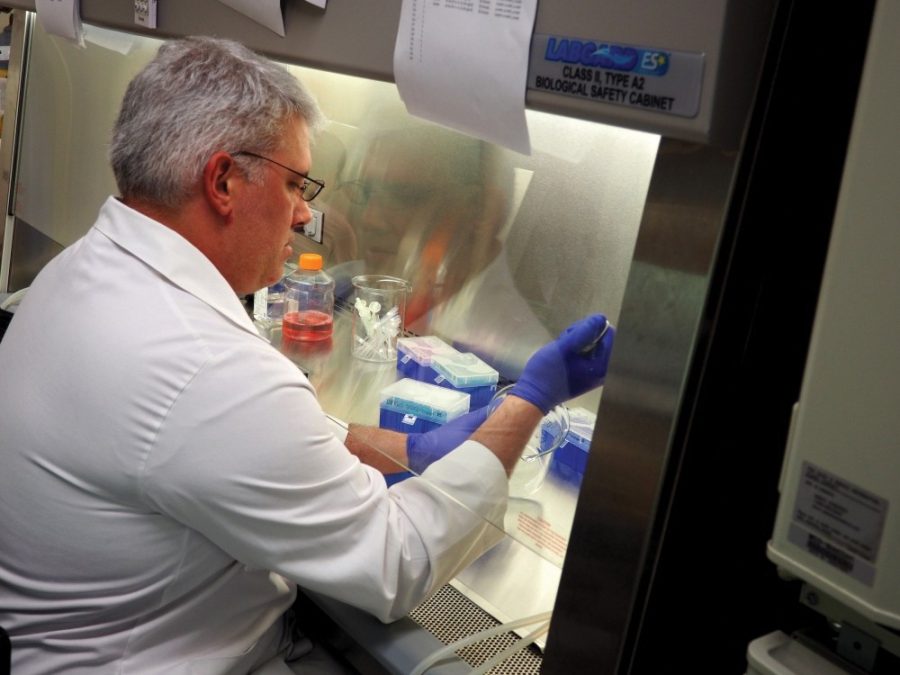The University of Arizona has spent the past year continuing to dedicate itself to the well deserved position of number one research campus in the state.
From the launching of OSIRIS-REx to the push by Professor Kimberly Ogden to turn algae into a form of environmentally conscious and economically-viable jet fuel alternative, the UA science departments have been nothing short of ambitious.
OSIRIS-REx, an unmanned spacecraft out to collect samples that may reveal the primordial secrets of life is perhaps the most prominent of this year’s initiatives, with the UA staff helping facilitate and oversee its launch, providing continual oversight, and researching data as it makes its way to the carbonaceous asteroid, Bennu.
Taken from the OSIRIS-REx website itself, “Dante Lauretta of the University of Arizona, Tucson, is the principal investigator, and the University of Arizona also leads the science team and the mission’s observation planning and processing,” demonstrating the close relationship between the university and the central operations of this exhilarating step forward in the study of the infinite beyond of our blue marble.
To be entirely honest, the product of the UA’s contribution toward this venture has been breathtaking, in my opinion.
I had not known of the cooperation between the federal government and the UA on this multi-million dollar project, and having learned this, I have gained an incredible amount of respect for our sciences and the many professors and researchers here who worked to make this happen.
Just as OSIRIS-REx has brought together the best and brightest of the sciences to help accomplish something truly amazing, the university has also received funds from the United States Department of Energy in the charge to utilize algae in a fuel alternative.
The hope of the research team is to develop a fuel source that is economical as well as capable of combating the energy crisis that threatens many countries across the globe. The involvement and input from both researchers and the general public here in Arizona help create a strong and unified local response to the energy crisis as we work to ween ourselves off fossil fuels and standard resources.
RELATED: Looking to yesterday and tomorrow with OSIRIS-REx
Notwithstanding the intrinsic greatness in pushing the boundaries of human knowledge and capability, there are furthermore two valuable outcomes associated with the University of Arizona continuing to invest in our sciences and in numerous research projects.
The first is that the community’s involvement, especially that of the UA team, in these projects will allow for incredible amounts of experience and prestige to be earned, providing more opportunities for students in their desired career paths and bringing more prospective projects and grants to the school.
The second is our university’s capacity to draw attention to, as well as resolve, local issues or focus on problems that resonate with the southwest, more than would any other college or national organization.
Take for example, the university’s research into the genetic makeup of those effected by valley fever.
The issue is dear to the heart of many Arizonans, as almost 65 percent of valley fever cases occur in Arizona.
The university takes strides in research and community engagement by taking in around 200 patients and studying their genetic code, and will be able to identify what makes someone more susceptible to catching valley fever, or experiencing harsher symptoms.
If the University of Arizona did not pioneer these programs, we would run the risk of experiencing the absence of a major force for the application of science towards solving both local and global issues.
To me, this is more than just jumping on open grants or asking for money, it is Arizona stepping up to the plate and letting our voices be heard in the scientific community.
This year has been an exciting push forward, with funding being given to proposals whose prospects are bringing attention and possibilities to the students and researchers of Arizona.
I am proud of our contributions to academic research, not just as a student, but as a member of the Arizona community.
Follow Alec Scott on Twitter.









